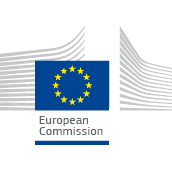
Preparatory Action-European Fellowship Scheme for Researchers at Risk
Deadline: Sep 7, 2023
CALL EXPIRED
CALL EXPIRED
At the level of project, the expected results include:
-
Establishing, testing and validation of the proposed selection and matchmaking procedures through a small-scale fellowship scheme.
-
The award of (around) 30 fellowships for researchers at risk,
-
Ensuring the follow-up and overall sound management of the project.
At the level of individual researchers, the following outcomes are expected inter alia:
-
New research and transferable skills and competences, leading to improved employability and career prospects within and outside academia.
-
New knowledge allowing the conversion of ideas into products and services, where relevant.
-
Enhanced networking and communication capacities with scientific peers, as well as with the general public that will increase and broaden the research and innovation impact.
-
Building long-lasting collaborative links with EU counterparts.
This action will pilot a European Fellowship Scheme to support Researchers at Risk by establishing, testing and validating procedures for the selection of researchers (assessing their risk and awarding them the fellowship) and for matching researchers with host institutions in the EU. The action will contribute to enhancing support for researchers at risk to continue their work in a safe environment, whether academic or non-academic.
Fellowship scheme for researchers at risk
To validate the established procedures, the PA will award fellowships to researchers at risk in two tracks, with around 15 fellowships in each track:
-
Track 1: Urgent placements for non-EU researchers at risk (outside the refugee process) who are facing threats in their country of residence or have recently fled their country of residence due to such threats, and have neither refugee nor subsidiary protection status.
-
Track 2: Non-EU refugee researchers and follow-up placements for at-risk candidates outside the refugee process – i.e. researchers with recognised refugee or subsidiary protection status; or researchers outside the refugee process holding or applying for temporary permits/visas
The evaluation and selection procedures of researchers will follow a set of criteria for the assessment and validation of researchers’ risk (type, level, authenticity, etc.), background, research and work portfolio (quality and excellence), asylum/refugee status, and any other relevant assessment criteria. The evaluation and selection criteria will be an important part of the proposal developed by the applying consortium and they should be based on the consortium’s prior experience in evaluation and vetting procedures for at risk researchers. Experience of comparable national and international programmes should be considered.
Researchers may come from all domains of research and innovation. Their proposals must be in line with the objectives and principles of scientific excellence, skills and career development, inter-sectoral mobility, equal opportunities and inclusiveness, attractive working conditions, work/life balance, while fostering open science, innovation and entrepreneurship.
Applicant researchers can be either doctoral candidates (enrolled in a doctoral programme leading to the award of a doctoral degree) or postdoctoral researchers (in possession of a doctoral degree).
The beneficiary and third parties hosting researchers at risk
The beneficiary of this Preparatory Action will report to the European Research Executive Agency and will be responsible for the implementation of the fellowship scheme:
-
its overall management,
-
establishing, testing and validating the procedures and criteria for the evaluation and selection of researchers at risk,
-
the implementation of the proposed scheme to match selected researchers with potential hosts, in cases when researchers have not yet identified a potential host organisation.
Eligible third parties that will host researchers are principally academic or non-academic research organisations established in an EU Member State. Other organisations, including those established in non-EU countries can host researchers for short-term secondments.
Public link: Only for registered users
 Pilot Projects & Preparatory Actions
Pilot Projects & Preparatory Actions


Please Log In to See This Section